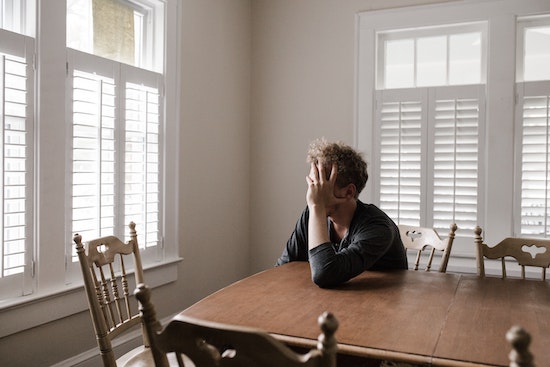The Practice of Compassion
Pema Chodron talks about compassion and says: “When we practice generating compassion, we can expect to experience our fear of pain....

Do you find yourself overwhelmed by uncontrollable worry and intrusive thoughts?
Is anxiety hindering your ability to function and pursue the life you desire?
Perhaps you feel constrained by fear, preventing you from pursuing your hopes and dreams. Despite your desire to relax and embrace life’s opportunities, you may feel constantly on edge, making it seem impossible to let your guard down. Anxiety may have made your world feel small—you may find yourself withdrawing, declining social invitations, and neglecting responsibilities. If you’re contemplating seeking help from a therapist who specializes in anxiety, you’re not alone.
Your anxiety may manifest in various ways, from panic attacks to rapid heart rate, excessive sweating, and even night terrors. If you’re experiencing Obsessive-Compulsive Disorder (OCD), you might struggle with a constant need for orderliness, symmetry, or cleanliness. Particularly in the aftermath of a global pandemic, where concerns about contamination have heightened worldwide, you may find it daunting to leave your home.
One of the most frustrating aspects of dealing with anxiety is the feeling of being unable to talk yourself down. Regardless of your intelligence, anxiety can be impossible to reason with. Even when you know, deep down, that you’re capable of something, anxiety often traps you in a constant push-and-pull of “Yes, I can; No, I can’t.”
Fortunately, you’re not alone, and you don’t have to endure this indefinitely. Anxiety treatment with Genesis Counseling can empower you to regulate painful emotions, dismantle barriers of fear, and rediscover the essence of who you are.

In our practice, anxiety is the primary reason individuals seek therapy. In a world disrupted by COVID-19, where millions face new health risks and an uncertain future, anxiety has become a widespread norm.
Moreover, the political climate in our country exacerbates anxiety. Racism, sexism, and systemic oppression are rampant, causing fear and distress among many in minority communities. Coupled with social inequality, the endless stream of misinformation about politics on TV and social media further fuels anxiety. It can be challenging to discern whom to trust and what to believe.
Many of us are subtly taught that an anxiety disorder is a sign of weakness, and there’s a belief that one can simply “get over” anxiety by thinking positively. However, this perspective isn’t realistic. Anxiety is more closely linked to brain chemistry than personal strength. It’s an issue that tends to compound upon itself, easily spiraling out of control. When you feel anxious about one thing, it often leads to anxiety about other aspects of your life.
That’s why seeking help is crucial. Anxiety treatment offers an opportunity to gain control over your symptoms, breaking the cycle of stress and fostering a more grounded and balanced life.

Living with anxiety can feel like carrying a heavy burden wherever you go. At Genesis Counseling, you have the opportunity to share that weight with someone who understands and to explore why it feels so heavy for you. Collaborating with your counselor, you’ll delve into the people, places, and circumstances triggering your anxiety, and together, you’ll develop coping strategies for navigating everyday stressors.
Following an intake session where we get to know you, the initial focus is on identifying the root causes of your current stressors. This often involves gently unpacking any unresolved trauma or unprocessed family history.
The primary objective isn’t to dwell on the past itself, but rather to understand the connection between past experiences and the dysfunctional thought patterns you may be experiencing today. For example, if you grew up feeling like you could never please a parent, you might harbor a constant fear of disappointing your current partner or loved ones.
Additionally, we aim to help you articulate your needs and feelings, enabling you to process your anxiety in a healthier manner. Anxiety often arises from burying painful emotions and avoiding dealing with them. Our goal is to assist you in releasing these emotions through activities that promote healing. Whether it’s engaging in art therapy, journaling, or spending time in nature, we encourage you to discover grounding strategies that resonate with you and help you maintain balance during anxious moments.
At Genesis Counseling, we approach anxiety counseling with a narratively-minded perspective. This approach revolves around rewriting the story of your anxiety, empowering you to reframe your current thought process. For example, this might involve revisiting a moment of childhood anxiety and composing a letter of encouragement to your younger self—acknowledging their strengths, imparting skills they can utilize, and assuring them that things will improve.
Through this narrative exploration, we thread a connection between your past and present experiences with anxiety. This process enables you to forge new and empowering connections to moments in your life when hope seems scarce. It also offers a broader perspective—while your current situation may feel overwhelming, it is no more permanent than the challenges you faced in your youth.
In addition to narrative therapy, we heavily incorporate Cognitive Behavioral Therapy (CBT) techniques. CBT aims to retrain your brain to form new associations with anxiety triggers. By redirecting your thought process during moments of stress, you can cultivate a sense of grounding, serenity, and confidence in situations that previously caused anxiety.
While anxiety can feel overpowering, it’s important to recognize that it’s highly treatable thanks to the array of tools and resources available. By addressing the root of your stress, reframing your narrative, and redirecting dysfunctional thought patterns, you can reclaim control of your life and rediscover wholeness and peace.

We understand that addressing all your anxiety concerns in one session is not feasible. Our goal is to guide you to a place where you feel more confident and aligned with your true self. This journey will help diminish the intensity of your anxiety, making your problems more manageable. While your challenges may not suddenly feel insignificant, they will become less overwhelming.
It’s crucial to practice patience and compassion with yourself during this process. Healing from anxiety is a gradual journey, and no one can expect to overcome it overnight.
As therapists, we are unable to prescribe medication. During your intake session, we will discuss the strategies you’ve already tried to alleviate your anxiety and collaboratively develop a plan to manage your symptoms effectively in the present moment. Many clients discover that therapeutic interventions alone provide significant relief.
However, if you believe medication could be beneficial for you, we are more than willing to provide a referral to a doctor or psychiatrist who can prescribe it.
The treatment process is straightforward and tailored to your needs. Once you book your initial appointment, we will work with you to schedule sessions at a consistent day and time that suits your schedule. Our practice offers both in-person sessions at our office and online sessions via telehealth. Rest assured, our telehealth network is 100% secure and HIPAA-compliant.
Regarding the duration of therapy, it’s entirely up to you. We will collaborate with you to determine the most appropriate course of treatment based on your progress and goals.
If you’re tired of anxiety sabotaging your ability to function and achieve your hopes and dreams, we are confident that we can help you regulate your mood, reframe your thinking, and renew your sense of hope. To get started, you can use our contact form or call 561-408-1098.
Pema Chodron talks about compassion and says: “When we practice generating compassion, we can expect to experience our fear of pain....
So often and so easily we make “our message” and “our gift” about us. But it’s not about us....
My user name on my Peloton Bike is “DareGreatly”. It comes from this quote by Theodore Roosevelt, “It is not the critic who counts; not the man who points out how the strong man stumbles, or whe...
As a therapist and spiritual life coach, I am often asked what the difference is....